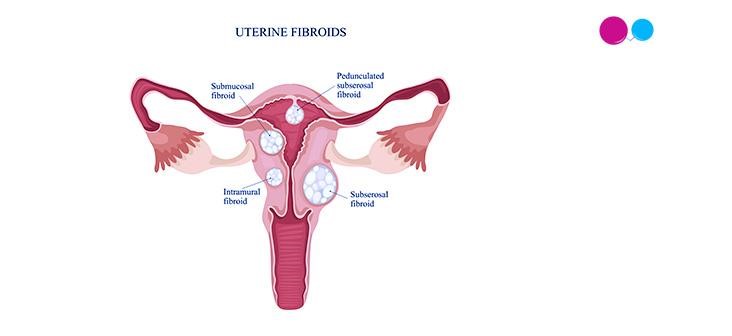
Miscarriages are disheartening and traumatic events in the lives of partners. Anyone who has been through one or knows of anyone else having gone through such experiences know the hurt, pain and disappointment that a miscarriage could cause.
While some women place the blame on themselves for losing the unborn child, it is important to understand that miscarriages are quite out of your control.
Quick facts about miscarriages:
The loss of pregnancy during the first trimester or the first 13 weeks is termed as early pregnancy loss or miscarriage.
It is also termed as spontaneous abortion. A study by the American College of Obstetricians and Gynecologists revealed that miscarriages typically occur in about 10-25% of all known pregnancies (those that are confirmed with a test).
But why and how do miscarriages occur? Are the triggers the physical, mental or genetic health of an individual?
Read to know 9 most common causes of miscarriage:
Chromosomal abnormality: The human reproductive system has all the configurations of a normal and healthy pregnancy stored deep within – a cell memory level. When it encounters a genetic or chromosomal abnormality such as Down Syndrome, Turner Syndrome, cystic fibrosis among others, the reproductive system rejects the pregnancy and prevents it from taking hold, in most cases, leading to a miscarriage. While the partners may be genetically perfect, their chromosomes may not align correctly to result in a healthy pregnancy. Women who go through recurrent loss of pregnancy (that is loss of two or more consequent pregnancies) are recommended genetic counselling or a maternal-fetal medicine specialist consultation.
Uterus abnormalities: Two common abnormalities of the uterus could lead to miscarriages. These are – septum and fibroids. A genetic uterine abnormality – the septum, an extra piece of tissue within the uterus that abnormally divides or shapes it, doesn’t receive the same amount of blood supply as the other healthy part of the uterus. The zygote either doesn’t implant or does not sustain after implantation due to lack of nutrition, resulting in a miscarriage.
Fibroids develop as benign cavities in the uterine cavity and are a cause of concern for couple trying to get pregnant. Fibroids commonly cause miscarriages and also hinder the process if IVF. While they are detected through several methods, they can also be corrected with surgery.
Sperm DNA fragmentation: When the male partner has a high percentage of sperms with fragmented DNA, successful fertilization is often a question. Despite this condition, where the male sperm is unable to deliver DNA to the female egg, fertilization does occur, the female reproductive system cannot sustain the pregnancy and self-terminates it leading to a miscarriage. Treatment options such as sperm aspiration and intracytoplasmic sperm injections (ICSI) can be offered to those who seek treatment.
Thyroid problems and uncontrolled diabetes: It is well-known that both, hypothyroidism and hyperthyroidism, and diabetes could lead to miscarriages. While hypothyroidism triggers production of other hormones that suppress ovulation, hyperthyroidism interferes with estrogen’s function which makes uterus unfavorable for implantation. Hyperthyroidism could also lead to unwarranted uterine bleeding thus rejecting the fertilized egg. Insulin resistance during diabetes is determined to be a cause of recurring miscarriages in several women.
Immunological disorders: In most women, the human body does not recognize sperms and the developing fetus as foreign objects. Hence the immune system does not attack the fertilized egg. In some women, however, an autoimmune disorder called the antiphospholipid syndrome triggers an increased production of antiphospholipid antibodies that prevent the implantation of the fertilized egg resulting in a miscarriage. This syndrome actually explains a lot of unexplained miscarriages, and once women screened and detected with the syndrome are offered blood thinners, it addresses most of their concerns.
PCOS (Polycystic Ovary Syndrome): Women with PCOS are known to have high levels of male reproductive hormone testosterone. This causes irregularities in the female menstrual cycle at the ovulation and menstruation stages. Also PCOS prevents the endometrial lining from maturing due to insulin resistance. This leads to improper implantation ultimately causing miscarriages.
Bacterial infections: While the genital tracks and reproductive organs in both men and women are lined with useful and harmless bacteria, harmful bacteria such as mycoplasma hominis and ureaplasma urealyticum cause inflammation of the endometrium. The developing implanted fetus does not develop properly and miscarries as a result. Other infections that can cause miscarriages are listeria, rubella, mumps, measles, gonorrhea, chlamydia – however, these are viral infections.
Drugs and toxins: Drugs and exposure to environmental toxins can cause irreversible damage to the growing fetus causing it to self-destruct, in most cases. Exposure to the toxic chemical bisphenol A (BPA) found in plastics could increase the risk of miscarriage up to 83%.
Lifestyle: Regular intake of tea and coffee does not lead to pregnancy complications and miscarriage. However, nicotine in excess of 8 ounces a day can cross the placental shield interfere with the blood supply reaching the developing fetus. Needless to say that consumption of two or more alcoholic beverages could lead to a miscarriage. Also smokers carry a greater rate of miscarriage as compared to non-smokers as concluded by a study conducted by the Stanford University School of Medicine.
While a miscarriage is a devastating event for the individual and the couple, it is advised to consult your doctor and receive a go-ahead to try conceiving again as soon as possible. Also you must remember that medical science has several tests and treatments to offer to help you achieve a healthy pregnancy in the future!
Source: https://www.beingtheparent.com/9-most-common-causes-of-miscarriage/
The content is owned by admin. Visit site here for other valuable articles.




No comments:
Post a Comment